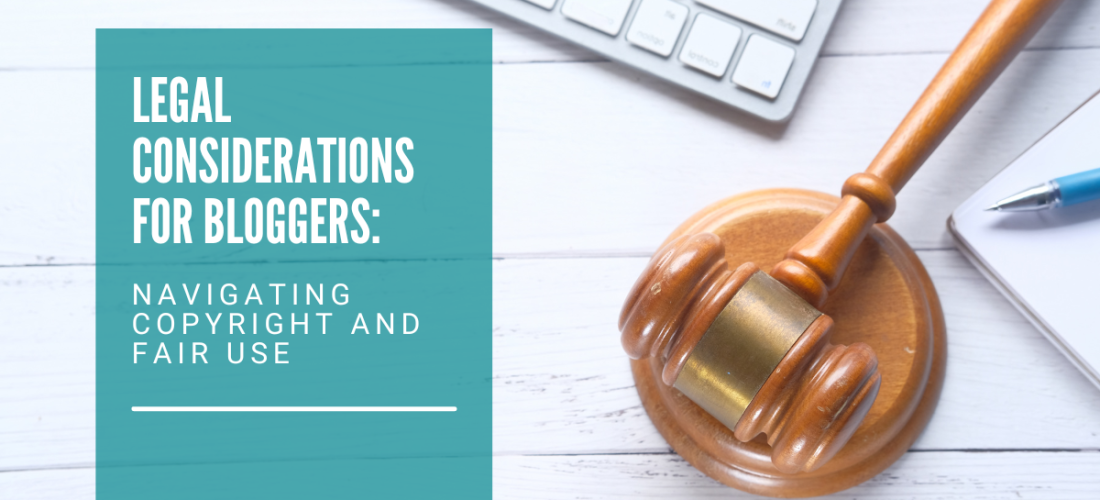Blogging is a creative and expressive medium that enables individuals to share their thoughts, insights, and knowledge with a global audience. However, while the digital realm offers boundless opportunities for creativity, it also presents a series of legal considerations that bloggers must be aware of. This blog post’ll focus on two crucial aspects of blogging and the law: copyright and fair use. Understanding these concepts is essential for maintaining a legal and ethical blogging practice.
Copyright Basics
Copyright is a legal protection granted to the creators of original works, such as text, images, music, and videos. The copyright holder has exclusive rights to reproduce, distribute, and display their work. This means that copying, using, or distributing copyrighted material without permission can have legal consequences, including monetary penalties.
As a blogger, you must consider copyright when using content created by others and how your own content is protected by copyright. Here are some key copyright considerations for bloggers:
- Using Others’ Content:
- Always seek permission or use content with a proper license when using someone else’s work. This applies to images, music, and even lengthy excerpts from text.
- Correctly attribute the source of your content, giving credit to the original creator.
- Fair Use:
Fair use is a legal doctrine that allows limited use of copyrighted material without permission for purposes like criticism, comment, news reporting, teaching, and research. However, the criteria for fair use are subjective and can vary.
- Public Domain:
Content in the public domain is not protected by copyright and can be freely used. Public domain content includes works with expired copyright, government publications, and content explicitly placed in the public domain by the creator.
- Licensing:
Creative Commons licenses offer a flexible way for creators to grant permission to use their work, with various levels of restrictions or permissions.
Fair Use in Blogging
Fair use is a crucial concept for bloggers. It allows you to incorporate copyrighted material into your content under specific circumstances. To determine whether your use of copyrighted material falls under fair use, consider the following factors:
- Purpose: Is your use for purposes like criticism, comment, news reporting, teaching, or research? These are more likely to be considered fair use.
- Nature: What is the nature of the copyrighted material? Using factual information or works with a weaker claim to copyright protection is more likely to be considered fair use.
- Amount: How much of the copyrighted material are you using? Using small rather than substantial portions increases the likelihood of fair use.
- Effect: Does your use negatively affect the market for the original work? If your use substitutes the original work or harms its commercial value, it may not be considered fair use.
Best Practices for Bloggers
To stay within legal boundaries and avoid copyright infringement, bloggers should consider the following best practices:
- Create original content whenever possible, giving you complete control over your work.
- Attribute and link to your sources when using others’ content, following fair use guidelines.
- Be aware of public domain and Creative Commons-licensed content for safe usage.
- Seek permission from content creators when in doubt about using their work.
- Educate yourself on copyright law and fair use principles to make informed decisions.
- Consider legal advice if you’re unsure whether your usage qualifies as fair use.
Blogging is a dynamic and creative outlet, but bloggers must be mindful of the legal considerations that come with it. Understanding copyright, fair use, and best practices for using content created by others is vital for maintaining a legal and ethical blogging practice. Bloggers can ensure their content creation remains creative and legally sound by respecting intellectual property rights, giving proper attribution, and staying informed about legal developments.





